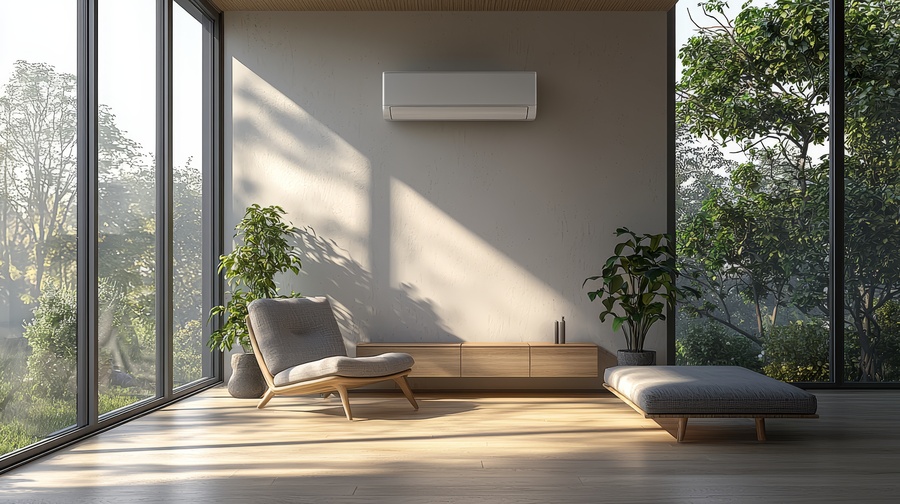We spend more time indoors than ever before, yet most of us rarely stop to think about what’s actually in the air we’re breathing at home. From unseen allergens to harmful gases, indoor air pollutants can cause everything from constant fatigue to serious respiratory issues. At Atlantic Plumbing, Heating & Air Conditioning Inc., we know how important clean air is—not just for comfort, but for your health. That’s why we’re passionate about providing smart, effective indoor air quality solutions for homes across Palm Beach and beyond.
Understanding Indoor Air Quality
Indoor air quality (IAQ) refers to the condition of the air within and around buildings, particularly as it relates to the health and comfort of building occupants. The importance of IAQ cannot be overstated as it directly affects our well-being. Understanding what contributes to poor indoor air quality is the first step in finding effective solutions.
Common Indoor Air Pollutants
Indoor air pollutants come from various sources, and identifying them is crucial for maintaining a healthy home environment. Some common indoor air pollutants include:
- Volatile Organic Compounds (VOCs): Found in many household products such as paints, varnishes, and cleaning supplies.
- Particulate Matter: Includes dust, pollen, and smoke particles that can aggravate respiratory conditions.
- Mold and Mildew: Thrive in damp environments and can trigger allergic reactions.
- Pet Dander: Tiny particles shed by pets that can cause allergies.
- Carbon Monoxide: A colorless, odorless gas that can be deadly in high concentrations.
Impact of Poor Indoor Air Quality on Health
The effects of poor indoor air quality can range from minor irritations to serious health issues. Here are some ways it can impact our health:
- Respiratory Problems: Pollutants like dust and mold can exacerbate asthma and other respiratory conditions.
- Allergic Reactions: Common allergens such as pet dander and pollen can lead to sneezing, itching, and other allergic symptoms.
- Headaches and Fatigue: VOCs and carbon monoxide can cause headaches, dizziness, and fatigue.
- Long-term Health Risks: Prolonged exposure to indoor pollutants can increase the risk of developing chronic conditions.
Indoor Air Quality Solutions
Improving indoor air quality involves a combination of strategies tailored to address specific pollutants. Here are some effective solutions:
Home Air Purification Systems
Home air purification systems are designed to remove contaminants from the air, making it cleaner and healthier to breathe. These systems can capture a wide range of pollutants, including dust, pollen, and VOCs. At Atlantic Plumbing, Heating & Air Conditioning Inc., we understand the importance of clean air, and our air purification solutions are tailored to meet the specific needs of your home.
Allergy-Friendly HVAC Systems
Heating, ventilation, and air conditioning (HVAC) systems play a crucial role in maintaining indoor air quality. Allergy-friendly HVAC systems are equipped with high-efficiency filters that trap allergens and prevent them from circulating in the air. Regular maintenance of HVAC systems is essential to ensure optimal performance and air quality.
Air Filtration Systems
Air filtration systems are effective in removing particulate matter from the air. They work by trapping particles in a filter, preventing them from being inhaled. High-efficiency particulate air (HEPA) filters are particularly effective in capturing small particles, making them an excellent choice for those with allergies or asthma.
Humidity Control
Maintaining the right humidity levels is crucial for preventing mold growth and reducing the presence of dust mites. Humidity control systems can help maintain optimal humidity levels, creating a healthier indoor environment.
How HVAC Systems Impact Air Quality
HVAC systems are integral to maintaining not only the temperature but also the air quality within our homes. Here’s how they can impact air quality:
- Ventilation: Proper ventilation is key to ensuring a constant flow of fresh air, reducing the concentration of indoor pollutants.
- Filtration: Quality filters in HVAC systems can capture a wide range of pollutants, improving the overall air quality.
- Humidity Control: HVAC systems can help regulate humidity levels, preventing conditions that promote mold growth.
Steps to Improve Your Home’s Air Quality
Improving indoor air quality requires a proactive approach. Here are some steps you can take:
- Regular Maintenance: Regularly maintain your HVAC system to ensure it is functioning efficiently.
- Use Air Purifiers: Consider installing air purifiers to remove contaminants from the air.
- Control Humidity: Use dehumidifiers or humidifiers to maintain optimal humidity levels.
- Choose Low-VOC Products: Opt for paints, varnishes, and cleaning products that are low in VOCs.
- Ventilate: Ensure proper ventilation by opening windows and using exhaust fans.
At Atlantic Plumbing, Heating & Air Conditioning Inc., we believe your home should be a place where you can breathe easy—literally. Whether you’re looking for air filtration systems, advanced home air purification, or a more allergy-friendly HVAC setup, we’ve got the tools and experience to help. Our customized indoor air quality solutions are built for real homes, real families, and real peace of mind.
Ready to improve the air you breathe? Get in touch with us today to explore our full range of IAQ services designed to support your health and comfort all year round.
